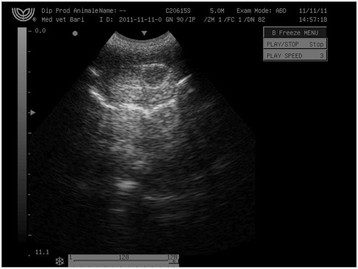Two long-term research studies pinpoint optimal sterilant for inexpensive, safe and effective nonsurgical neuter in dogs. The results have the potential for significant impact on methods to control pet overpopulation worldwide.
The scientific studies were conducted by Dr. Raffaella Leoci, supported by Parsemus Foundation and published as open access articles in Acta Scandinavica Veterinaria. The authors reported that a 20% solution of calcium chloride dihydrate in alcohol (“Calchlorin”) provides the optimal solution for safe and effective nonsurgical sterilization. A simple and quick intratesticular injection of Calchlorin caused infertility for 12 months and a reduction in testosterone with accompanying loss of male dog sexual behavior. The procedure has the potential to revolutionize large scale dog sterilization programs, since it enhances welfare and reduces costs dramatically as compared to traditional surgical castration.
Determining an optimal solution
The new studies focus on evaluating the optimal solution and long term effects of using calcium chloride as a one-time intratesticular injection for neutering male dogs. The research program, led by Dr. Raffaella Leoci of University Bari Aldo Moro in Italy, is the first to evaluate the long-term effects of the procedure on hormones, health and sperm characteristics in a large number of dogs. Dr. Leoci specializes in animal reproduction and is passionate about finding better sterilization options.
“Italian law has a no-kill policy, and stray dogs are captured, microchipped, neutered and taken to dog shelters – or just released when the shelters are too full. The trap/neuter programs are not on a large enough scale and the dog population is growing fast. This has led to serious health and welfare concerns,” said Dr. Leoci. “Surgical castration is not a practicable solution- it is too expensive and time consuming. My priority was to find an alternative method to prevent dog reproduction that is safe, effective, low cost and easy to perform to prevent the suffering dogs experience as strays.”
The initial study evaluated a number of concentrations of the chemical, and the second study evaluated the best diluent (solvent) to find a combination that is the most effective with fewest side effects. A 20% CaCl2 solution in alcohol (being called “CalchlorinTM”) proved to be safe and effective over the 12 month trials.
The publications of the study are accessible online:
For more information, visit our calcium chloride page which includes background information, previous research and what you need to know to use Calchlorin.
About Dr. Raffaella Leoci’s Research
Dr. Raffaella Leoci graduated in Veterinary Medicine at Italy’s well-respected University of Bari (“Università degli Studi di Bari Aldo Moro”) in 2005. She received a Ph.D. (Reproduction Biology of Humans and Animals) from that university in 2009 and a Specialty degree (Physiopathology of Reproduction in Domestic Animals) there in 2012. Dr. Leoci is currently a researcher at the university and a private practitioner as a specialist in pet reproduction. She has been the principal investigator for the Parsemus Foundation’s research program at the university since 2011. Her main research interests include the identification of new techniques of non-surgical sterilization of companion animals (ultrasound and calcium chloride) and novel therapies for the treatment of the most common diseases of the male genitourinary system, with a recent publication on noninvasive treatment of benign prostatic hyperplasia.



